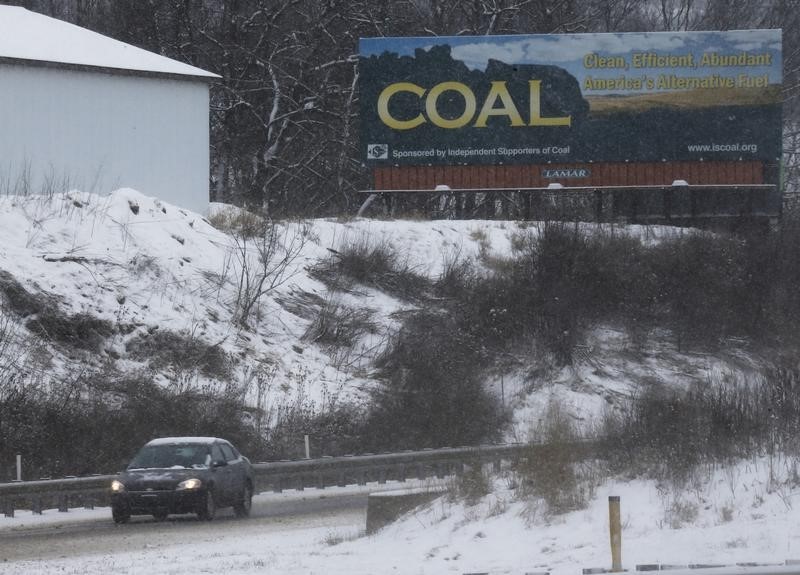By Rory Carroll
SAN FRANCISCO (Reuters) - A bill requiring California's state pension funds Calpers and CalSTRS to sell their investments in coal companies passed the Assembly on Wednesday, a major step for legislation that backers hope will inspire other funds to address climate change.
The bill, which passed by a vote of 43 to 27, would require CalPers and CalSTRS - public employee pension funds that manage a combined $476 billion in assets - to liquidate holdings in companies that generate at least half of their revenue from coal mining by July 2017.
CalPers invests in about 20 to 30 thermal coal mining companies valued at approximately $100 million to $200 million, a spokesman said. Coal companies it invests in include Peabody Energy and Arch Coal, according to its latest investment report. Neither company was immediately available for comment.
CalSTRS has holdings of around $40 million, a spokesman said. Both Calpers and CalSTRS did not take a formal position on the legislation and both declined comment after the vote.
"Coal is losing value quickly and investing in coal is a losing proposition for our retirees," said Senate President pro Tempore Kevin de León, the bill's author.
"It's a nuisance to public health and it's inconsistent with our values as a state on the forefront of efforts to address global climate change," he said.
Prior to the vote, bill opponent Assembly member James Gallagher said lawmakers should not make investment decisions based on "emotionalism."
"Let's not attempt to micromanage and stop the state's public pension boards from making new investments or renewing existing investments."
The California bill is the latest in the international coal "divestment" movement. Norway's parliament recently voted to reduce coal investments by its $880 billion sovereign wealth fund. Stanford University and the University of Maine have made similar moves.
"This is a landmark bill because it represents the first time state pension funds have divested on the grounds of climate change," said Will Lana, a partner at Trillium Asset Management, a "sustainable" investment firm that represents $2.2 billion.
New York and Massachusetts are in the early stages of considering similar bills, he said.
Backers also hope the bill will send a message that the U.S. is serious about combating climate change ahead of international climate change talks in Paris later this year.
The bill, which passed the state Senate in June, now heads to Governor Jerry Brown, who has not formally stated his position but who is still expected to sign it into law.
"Given the serious challenge of climate change, this proposal deserves careful consideration," Brown spokesman Evan Westrup told Reuters.
This is not the first time CalPers and CalSTRS investment decisions have been managed through legislation.

Existing law prohibits both retirement systems from investing in companies with active business operations in Sudan or companies with investments in the Iranian energy sector.